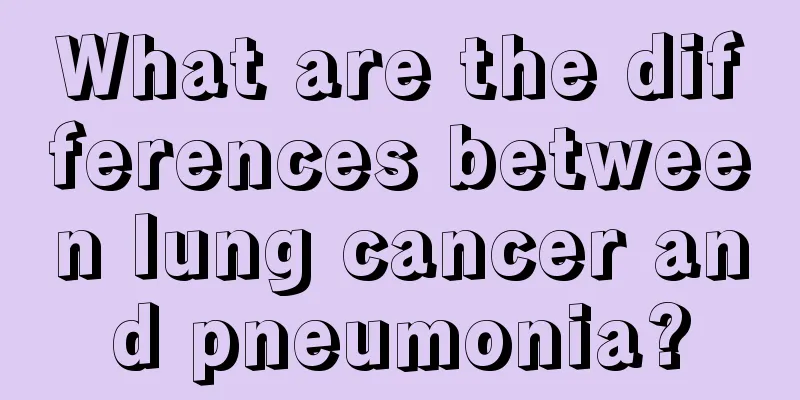What causes swollen and painful buttocks?

|
Recently, I found that my buttocks were swollen and painful. This condition mainly refers to the swelling and pain inside the anus and around the anorectum. After relevant examinations, there are many reasons for the swelling and pain in the buttocks, and because this symptom affects people's life and work, it is recommended that everyone seek treatment as soon as possible. Let’s take a closer look at the cause of swollen and painful buttocks. 1. Anal fissure: The pain is cyclical and often occurs during or after defecation. It is mainly caused by irritation from stool and expansion of the ulcer fissure. The pain is paroxysmal burning or knife-like pain and can last for several minutes; the pain subsides after the stool passes. In addition, due to the stimulation of defecation, the internal sphincter may be in continuous spasm, causing severe and persistent pain in the ulcer fissure; it can often last for several hours, and the patient is restless and in great pain; in severe cases, the pain can last for more than 24 hours. In addition to pain, anal fissures are often accompanied by symptoms such as bleeding and constipation. 2. Anal canal skin abrasion: It is more common due to certain special reasons, such as anal intercourse among homosexuals, or inserting foreign objects into the anus, which leads to skin damage in the anal canal and can cause severe pain and discomfort. 3. Thrombosed external hemorrhoids: In mild cases, there is a foreign body sensation, and the formed blood clots are larger, which can cause more severe pain. Due to damage to the perianal veins, blood clots form thrombi, and purple round hard nodules appear under the outer skin of the anus, usually at 3 o'clock and 9 o'clock in the lithotomy position. 4. Perianal abscess: The initial symptom is distension and pain. After the abscess is formed, the pain becomes more severe, especially for shallow abscesses. Common ones include subcutaneous abscess around the anus, ischiorectal abscess, pelvic rectal abscess, retrorectal abscess, and tuberculous abscess. In addition to the different main symptoms, these abscesses generally have fever, chills, constipation, and difficulty urinating. Unlike other parts of the body, more than 90% of perianal abscesses can form anal fistulas, which have a longer course of disease. 5. Incarcerated internal hemorrhoids: mainly characterized by distension and burning pain. It is mostly caused by varicose veins, damaged blood vessels, and thrombosis, which result in restricted tissue circulation and prolapse out of the anus and cannot be retracted. It is common in stage II and III internal hemorrhoids. Therefore, it is necessary to reduce or surgically treat the tumor as soon as possible, otherwise the surface mucosa will easily bleed, be damaged, or even become infected. 6. External hemorrhoid edema: Mainly characterized by swelling and burning pain, manifested as a localized lump at the edge of the anus, which is hard, smooth, shiny and obviously tender. It is mostly caused by fatigue, straining during defecation, or surgical stimulation. 7. Rectal cancer: There is no pain in the early stage. Later, as the tumor grows and ruptures, the anus may feel heavy and painful. Common symptoms include changes in bowel habits, bloody stools, abdominal distension, abdominal pain, and weight loss. If the patient has the above symptoms, he should seek diagnosis and treatment from a specialist in time. 8. Anal foreign body injury: It is mostly caused by foreign body residue from trauma or improper diet, fish bones, and bone fragments embedded in the anal canal and rectum. Therefore, you need to ask a doctor to check carefully and remove the foreign body, and the pain will be relieved. If the retention time is too long, it may cause local infection. 9. Anorectal neurosis: Pudendal nerve syndrome, rectal inflammation, etc. can cause anorectal pain, which requires clinical attention and differentiation. 10. Anal sinusitis: Generally, there is slight pain and heaviness in the anus. During defecation, the stool presses on the inflamed anal sinus, causing burning pain in the anus. If the sphincter contracts due to stimulation, the pain will intensify and radiate to the buttocks and posterior thigh. It is often accompanied by a small amount of purulent or mucous secretion with a foul odor, which may cause moisture, itching and other discomforts around the anus over time. After reading the above introduction, I believe you will have a basic understanding of why your buttocks are swollen and painful. Here, we recommend that if you find that your anus is swollen or painful, do not take medicine blindly or scratch it. It is best to go to the hospital to confirm the cause of the symptoms and then receive targeted treatment. |
<<: Why does brushing teeth cause nausea?
>>: What should I do if I have pain in my lower back muscles?
Recommend
Early symptoms of colorectal cancer
The stomach is also an area that everyone needs t...
Differential diagnosis of endometrial cancer in TCM
Endometrial cancer is similar to the descriptions...
What are the causes of low platelets
If the platelet content in the human body is low,...
Is gonococcus serious?
Neisseria gonorrhoeae is the causative agent of g...
What to do if your hands are hurt by the spicy peppers
When cooking at home, everyone may have had this ...
Who are suitable for medical abortion
We all know that there are many types of abortion...
What are the treatment options for thyroid cancer
What are the options for thyroid cancer treatment...
What are the small issues to pay attention to when checking for lung cancer? 7 small issues to note when checking for lung cancer
I believe everyone knows that lung cancer is a ve...
What does a forty-year-old man desire most?
When a man reaches the age of 40, he usually has ...
The reason for the melanin deposition on the chin, this is the best way to remove it
Ultraviolet radiation, endocrine reasons, lifesty...
Why can't you cut your nails at night?
Old people often say that children’s nails should...
Congenital scoliosis
Many diseases are congenital. Although they are d...
What are the treatments for lung cancer bone metastasis? There are three professional treatments for lung cancer bone metastasis
If lung cancer has metastasized to the bones, it ...
What ointment to use for facial acne
No matter what grows on the face, it will affect ...
Can ultrasound detect liver cancer? What should be noted when detecting liver cancer by ultrasound?
The liver is a very important organ in our body. ...









